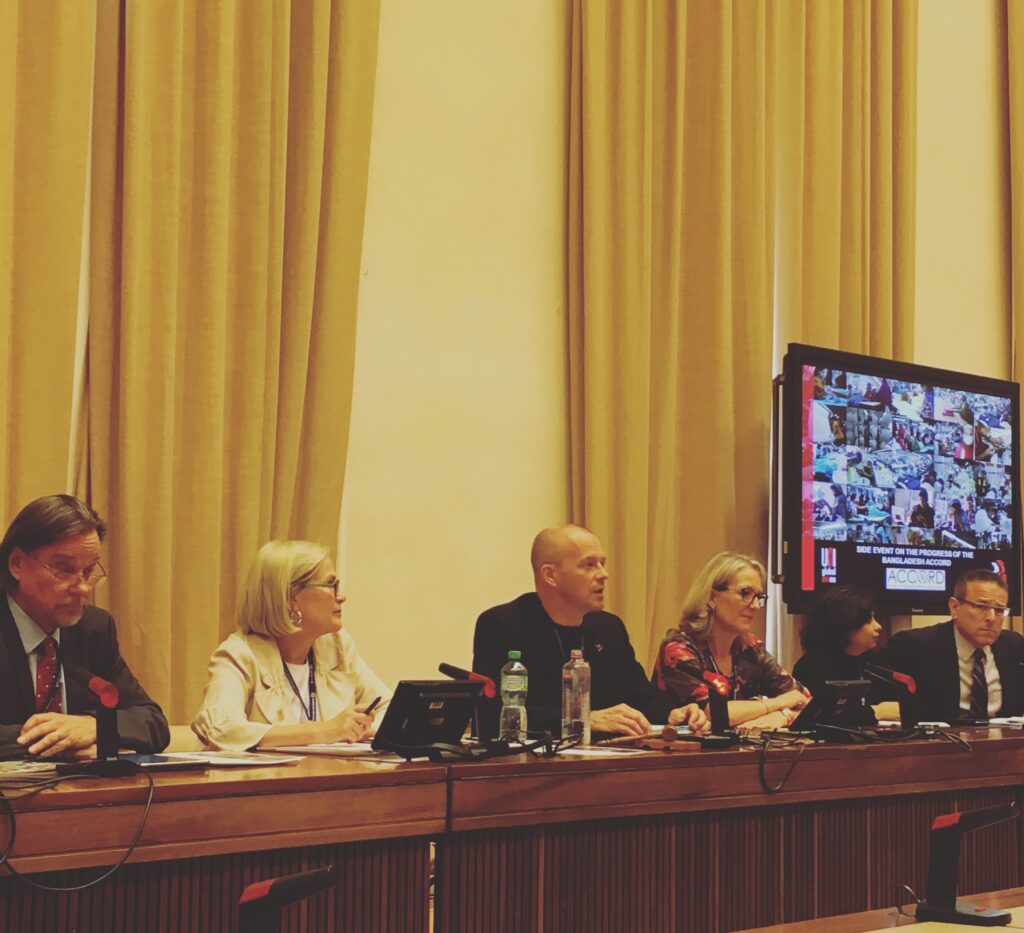2 June, 2016Three years after the creation of the Accord on Fire and Building Safety in Bangladesh, its current status and future challenges were discussed at a side event at the International Labour Conference in Geneva on 2 June. Despite some unacceptable delays in remediation progress, the Accord is making significant headway according to representatives from both workers and brands.
With the collapse of Rana Plaza on 24 April 2013, killing 1,134 and injuring thousands more, came an end to the tolerance of voluntary, non-transparent, non-enforceable factory inspections in Bangladesh.
"We would not accept anything less than a legally binding agreement to make Bangladesh’s garment industry safe and sustainable," said IndustriALL general secretary Jyrki Raina on the creation of the Accord, at the ILC side event.
Scott Nova, executive director of US-based Workers Rights Consortium, said that the challenges in Bangladesh’s garment industry were not new and not unknown for brands and retailers. Both the Rana Plaza and Tazreen factories had been subjected to numerous voluntary inspections prior to the deadly disasters.
The difference lies in the enforceability of the Accord, which to date, has been signed by 217 brands. Swedish retailer H&M was one of the first brands to sign, and H&M senior advisor KG Fagerlin said that collaboration has been a key factor behind the changes the Accord has brought to the workers in Bangladesh.
“The work doesn’t end when you sign the dotted line,” said IndustriALL policy director Jenny Holdcroft.
An inspected factory agrees a corrective action plan (CAP), together with a time plan in which to make the remedies. It is against the CAP that progress is measured.
Three years after is creation, the Accord has inspected 1,651 factories and made more than 50,000 safety renovations but pressure needs to be maintained as many essential safety improvements are yet to be made.
“So yes, there are still challenges, but the Accord is the most successful engagement to date because it is cooperative, legally binding and transparent,” said Jenny Holdcroft.
There is a process in place for when factories do not comply with the Accord.
So far, 26 factories that did not undertake required measures within the set time frame, have had business with Accord brands terminated.
IndustriALL has 15 affiliated garment unions in Bangladesh, who are represented on the Accord’s steering committee, and IndustriALL regional secretary Apoorva Kaiwar, said that this provides them with a platform to be part of the solution on the ground.
The current Accord is valid until 2018 – what happens after that?
UNI Global Union deputy general secretary Christy Hoffman said that keeping workers in Bangladesh safe is ultimately the responsibility of the government, but until it is ready to take its full responsibility, the Accord actors will continue their work.
“Even though great progress has been made in the garment industry, changing 30 year old ways of working takes time. We can’t collectively walk away. We need to finish the job we have started and carry on as long as it takes.”
